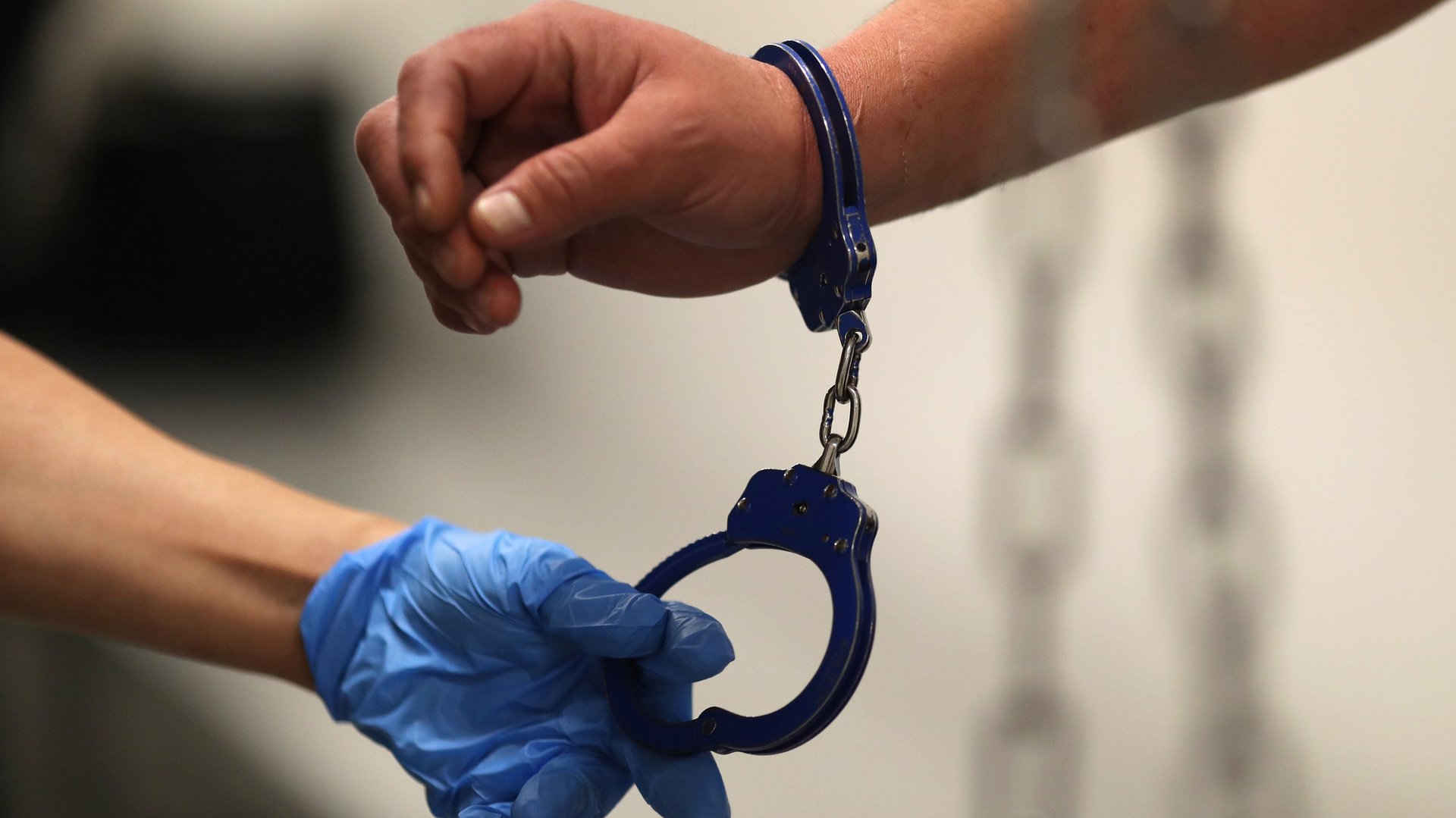Why ICE’s coronavirus response is so dangerous
In the midst of a global pandemic, US Immigration and Customs Enforcement (ICE) continues to imprison tens of thousands of people in a labyrinthine system of immigration jails and prisons across the country. Described by its own whistleblower doctors as a “tinderbox,” these immigration jails and prisons have already become hotspots for outbreaks of the Covid-19 respiratory disease.


In the midst of a global pandemic, US Immigration and Customs Enforcement (ICE) continues to imprison tens of thousands of people in a labyrinthine system of immigration jails and prisons across the country. Described by its own whistleblower doctors as a “tinderbox,” these immigration jails and prisons have already become hotspots for outbreaks of the Covid-19 respiratory disease.
Yesterday, ICE reported the first confirmed case of a person in its custody testing positive for Covid-19 in Bergen County Jail in New Jersey, soon after a corrections officer tested positive there last week. This follows reports of a medical staffer testing positive at a private immigration prison in Elizabeth, New Jersey, along with two people held in criminal custody at Hudson County Jail, which also holds a contract with ICE. At least 10 people were held in isolation in Aurora Contract Detention Facility in Colorado last week based on concerns of a Covid-19 outbreak, even as Denver area ICE agents continued to arrest parents, one on her way to pick up her children from school.
What public are we protecting?
Despite ICE’s continuing imprisonment of individuals and families in this pandemic, many have taken ICE’s recent announcement that it will curb enforcement by focusing on “public safety risks” at face value. This means many are trusting ICE to make the call of who is a public safety risk and who is not, and to base its policy decision on the lines it draws. The danger of this position could not be more acute: By accepting ICE’s directive, people are accepting that those in immigration jails and prisons—and their families—are not part of the public we need to keep safe.
These recent events make me think of people like Ousman Darboe, a longtime Bronx, New York resident, husband, and father, currently jailed at Bergen County Jail, whom ICE has kept locked up in civil immigration confinement since 2017. ICE claims he’s a public safety risk, even after governor Andrew Cuomo granted a pardon of his sole criminal conviction, an unarmed robbery for which he maintained his innocence. The Bronx Defenders, joined by my students at the NYU Immigrant Rights Clinic last year, has been advocating for Darboe’s release for more than two-and-a-half years. His wife, a US citizen, and their almost two-year-old daughter are now cut off from their weekly visits with Darboe at the jail due to the Covid pandemic. They are terrified of what will happen if any of them fall ill. It is a terror that countless families with loved ones in jails and prisons feel, needlessly. This is not public safety.
Stories like Darboe’s expose the false premise that has justified ICE’s existence since it was launched in 2003: that detention and deportation are necessary to protect the public. Evidence contradicted this rationale long before Covid-19 came on our collective radar. If anything, it has been becoming clearer that immigration enforcement is, in and of itself, inherently dangerous to the public; a truth that became apparent, tragically, last month in New York when ICE shot a man in the face during a home raid.
Now, Covid-19 has added another urgent dimension to our already volatile and fraught immigrant detention system. With the outbreaks predictably reaching jails and prisons, where containment of the virus is physically impossible, there’s no question that continued immigration enforcement actions will put ever-more people’s lives in danger, including the individuals ICE targets, their families, ICE’s agents, and corrections officers.
Permitting ICE to continue its work in the name of public safety gives the agency a greenlight to continue business as usual, but now with an added lethal element of the novel coronavirus. ICE should immediately suspend all enforcement actions, full stop.
There is precedent for such steps during past natural disasters and recovery efforts. Why aren’t the same actions being taken with the known risks of the coronavirus?
We’re in a national emergency, and prioritizing public health means prioritizing the health of the entire public, no matter what your citizenship status. No individuals or families should continue to be caged as the pandemic spreads. Immigration jails have long been criticized, by the federal government, no less, for unsanitary conditions and poor medical care leading to preventable death.
ICE has vast discretionary authority to release every person from civil immigration confinement through humanitarian parole and other means, and it should use them. Long before this outbreak, ICE has exercised this authority on an individual basis for people with serious health conditions. Although the Trump administration has done away with policies encouraging such actions, ICE still has the legal authority to release all individuals back to their homes, where they can socially isolate themselves and help care for their loved ones. Advocates stand ready to facilitate those releases and arrange housing for those who may need it.
This isn’t the first time ICE has relied on the claim of public safety to justify its policies. Perhaps now, under the glare of an unprecedented pandemic in modern life, we can begin to see that ICE’s definition of the public, like its definition of safety, is suspect. Covid-19 doesn’t ask for papers before it infects someone. It doesn’t care if someone has an arrest on their record. There’s only one public, and it includes all of us. Safeguarding human life should be paramount, above all else. If public safety means anything, it should mean that.